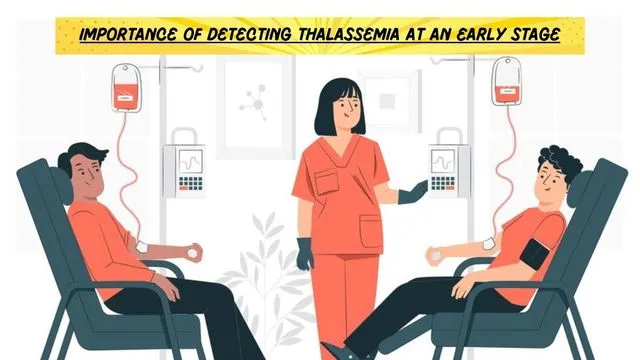- By Priyanka Munshi
- Wed, 08 May 2024 12:39 PM (IST)
- Source:JND
Do you know that early thalassemia detection and therapy are crucial for the effective control and treatment of the disease? Anemia and associated difficulties can result from the genetic blood condition thalassemia, which inhibits the generation of hemoglobin. Timely interventions, like iron chelation therapy and blood transfusions, can help reduce symptoms and enhance the quality of life when detected early.
Additionally, through genetic counseling and family planning, carriers of thalassemia can prevent the disease from passing on to future generations by identifying themselves before getting pregnant. In a conversation with Jagran English, Dr. Bhavya Saxena, a consultant pathologist at Global Reference Laboratory in Metropolis Healthcare Limited, discussed the importance of detecting thalassemia at an early stage.
According to Dr. Bhavya, thalassemia is an inherited blood disorder in which the body produces abnormal hemoglobin, resulting in excessive destruction of RBCs. Three main types of thalassemia (beta, alpha, and minor) and four subtypes of each type are known. Thalassemia symptoms depend on whether an individual is a carrier of an abnormal gene or has the disease. Carriers have both normal and abnormal genes for hemoglobin.
What Are The Symptoms Of Thalassemia?
- Fatigue
- Pale or yellowish skin
- Dark urine
- Abdominal swelling
- Stunted growth in children
- Facial bone deformities
India leads the world with the largest number of children with thalassemia major and approximately 1 lakh adult patients. This disease can have lifelong effects on individuals, and in severe cases, it may even be fatal. Therefore, it is essential to diagnose thalassemia as early as possible. Diagnosis often begins with complete blood counts (CBC) and peripheral smear analysis, and an unusual finding is followed up with Hb studies to identify abnormal Hb and iron studies. Hb studies should be included as part of antenatal blood testing as well. The disease is confirmed by DNA studies to detect the mutant gene in Hb.

Early detection and treatment of thalassemia are crucial for effective control and treatment, reducing symptoms and improving quality of life.(Image Credit:Canva)
As per Dr. Bhavya, Prenatal testing can be done before a baby is born if the parents have the disease or are known carriers. Tests include invasive procedures like CVS or amniotic fluid sampling done around the 11th or 16th week of pregnancy. These molecular tests aim to detect a mutation in the hemoglobin gene in β-thalassemia and large-deletion detection in α-thalassemia.
Also Read: 5 Easy Ways To Find Your Inner Peace And Calmness
What WHO Recommends For Early Diagnosis Of Thalassemia?
- Conducting awareness and screening programs in the community and schools.
- Establishing laboratories for screening and diagnosis.
- Providing genetic counseling to couples at pre-marital stages (to avoid marriage between two carriers) and pre-conception.
- Screening extended family members of all known and detected carriers and patients.

